In Southern Bangladesh, climate change is not a future concern. It is a relentless, daily challenge. Rising sea levels, tidal surges, and saltwater intrusion have eroded livelihoods, degraded farmland, and compromised access to clean water and food.
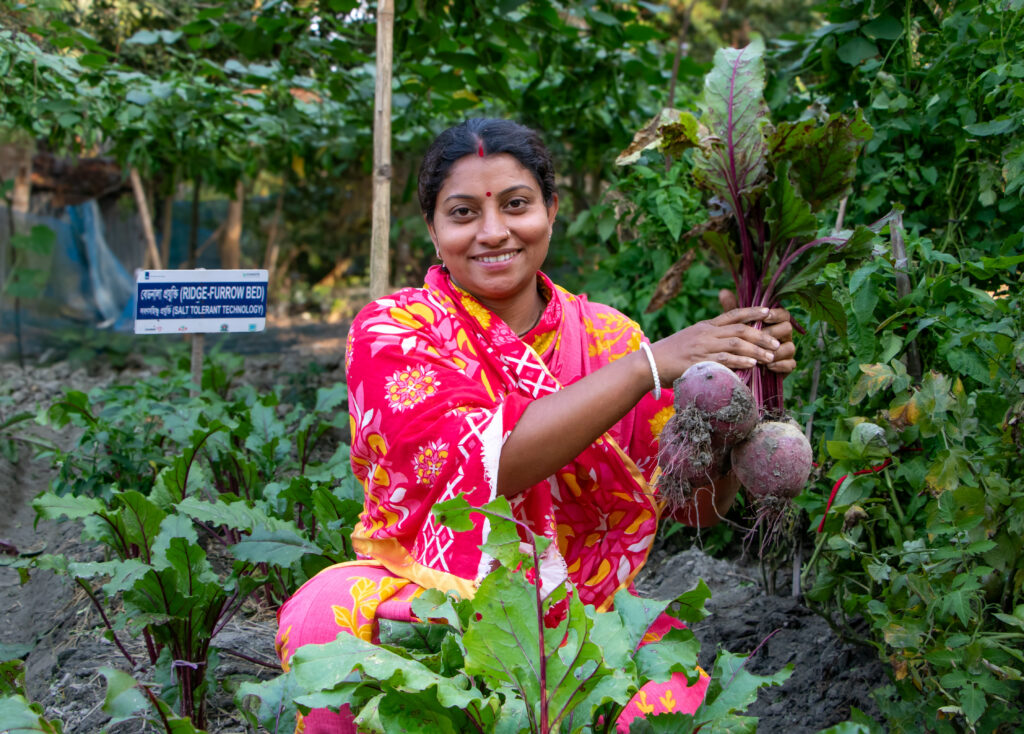
While traditional aid has brought temporary relief to coastal communities, it often fails to deliver lasting resilience. Time-bound projects, although impactful during their duration, cannot keep pace with the accelerating impacts of climate change. Once the funding dries up, communities frequently slide back into vulnerability.
Why is aid alone not enough
Short-term development interventions are like band-aids, helpful, but not transformative. Many initiatives provide training, inputs, or small grants, but lack the systems thinking and long-term partnerships necessary for durable change.
When a project ends, so does access to quality seeds, services such as access to finance, insurance, resilient farming technologies, fair markets, and climate-adaptive knowledge. Communities are left to wait for the next wave of support, locked in a cycle of dependency that undermines their potential.
The missing link
Private sector engagement becomes truly effective when both sides — communities and companies — share a common interest and can benefit mutually. However, many private companies remain hesitant to enter remote or underserved regions due to challenges like poor infrastructure, limited market data, appropriate technology and assumptions about low profitability.
But what if development programmes could shift this narrative? By facilitating partnerships that de-risk investment and align commercial incentives with community needs, we can create win-win models — where businesses discover viable new markets, and communities access the products, services, and opportunities they need to thrive.
The model: A breakthrough in private sector collaboration
Cordaid and its partners have shown that strategic private sector engagement (PSE) can break the cycle of aid dependency and create long-term, inclusive development.
Rather than viewing coastal communities as passive recipients, we see them as active market participants. We partnered with private sector actor Lal Teer Seed Ltd. to co-create locally adapted solutions that address both climate vulnerabilities and market failures.
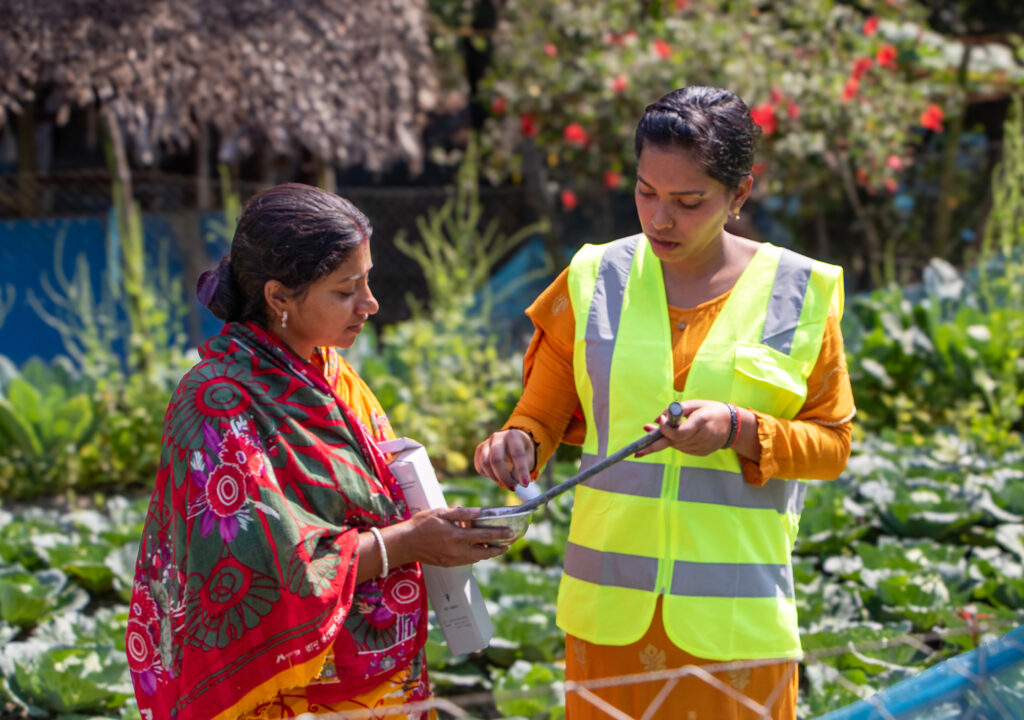
Key private sector strategies under COASTS
One-Stop Solutions for Coastal Farming Challenges
Farming in coastal areas comes with a complex set of challenges. Addressing these issues requires more than isolated interventions, but an integrated approach.
“The nearest soil and water testing lab is 20 kilometres from our village. Each visit costs us at least BDT 400 for transport and another BDT 200 for the tests. And then we wait several days for the results. For farmers like us, it’s simply unaffordable,” says Uma Roy, a smallholder farmer from Southern Bangladesh.
That’s where our highly trained Farm Business Advisors (FBAs), known as “FBA”, come in. These local young entrepreneurs act as one-stop service providers within their communities, bridging the gap between knowledge and access.
They help farmers to test their soil and water and provide instant results, right in their yard. Based on these tests, the FBAs offer tailored advice on climate-smart farming practices and the most suitable saline-tolerant seed varieties.
Even better, farmers can purchase seeds directly from them, eliminating the need to travel to distant markets and reducing both cost and time. This locally available, practical support system encourages more farmers to continue cultivating their land, despite the tough conditions.
By integrating services and making them accessible at the doorstep, FBAs are helping build sustainable farming systems, one solution at a time.
Co-developing high-value saline-tolerant seed varieties
In coastal regions, the availability of saline-tolerant seeds is limited, and the few that do exist often have low market demand or poor commercial value. This leaves farmers with little incentive to adopt them, and private companies with little motivation to invest.
To address this, we work closely with Lal Teer Seed Company to co-develop new, high-value saline-tolerant seed varieties that are both climate-resilient and Market-driven. These seeds respond to local soil conditions while meeting farmers’ and market preferences.
This collaboration creates a win-win scenario: farmers gain access to diverse saline-tolerant seed, profitable crop options, and seed companies tap into a growing demand, expanding their business while contributing to climate adaptation.
Making saline-tolerant seeds affordable and accessible
For many smallholder farmers, saline-tolerant seeds remain out of reach, not because they don’t exist, but because they are packaged in large quantities and sold only in distant markets. These bulk packages are expensive and impractical for farmers with limited land and resources.
“We want to farm, but saline-tolerant seeds are hard to find here. People travel all the way to the city to get them, but they come in big packs that we can’t afford. Sometimes it feels like farming just isn’t meant for people like us.” – Rita Rani Das, a smallholder farmer, Southern Bangladesh.
To overcome this barrier, we partnered with Lal Teer Seed Company to introduce customised small seed packs tailored specifically for smallholder needs. These affordable packs are now available in local markets and through Farm Business Advisors (FBAs), who earn a small commission by selling them directly to farmers during field visits.
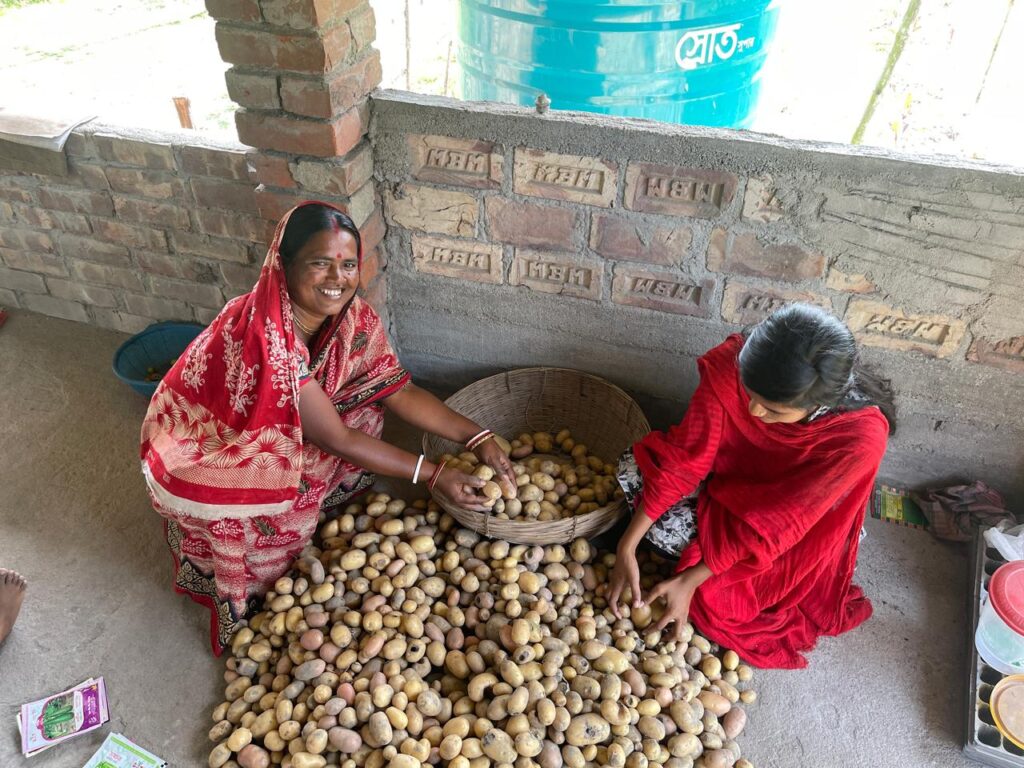
This approach generates multiple layers of impact:
- Farmers can now access the right seeds in the right quantity at a fair price.
- FBAs benefit from new income opportunities and grow as rural entrepreneurs.
- Seed companies tap into a previously underserved market segment and expand their customer base.
By aligning business innovation with farmers’ needs, this initiative is making climate-resilient farming more inclusive, scalable, and sustainable.
Bridging the market gap: ensuring fair prices for smallholder farmers
In remote coastal areas, smallholder farmers often face significant losses, not due to low production, but due to weak market linkages. Even when they manage to grow climate-resilient crops, many struggle to sell their produce. And when they do, it’s often at unfair prices dictated by middlemen. This lack of reliable market access discourages farmers from investing in agriculture, keeping them trapped in cycles of poverty.
To break this cycle, we’ve established local collection points within the villages, where buyers from larger urban markets come weekly to purchase produce directly. This system not only reduces transportation barriers for farmers but also ensures consistent, demand-driven off-take agreements.
By connecting farmers with private sector buyers through secure and long-term arrangements, we’re:
- Eliminating exploitative middlemen
- Stabilising prices
- Restoring farmer confidence in agriculture as a viable livelihood
This market-driven approach is helping turn farming into a more profitable and sustainable option for coastal communities.
Why this model works
This model succeeds because it’s not just about delivering aid, it’s about building systems that last. By engaging the private sector and empowering local actors, the approach delivers sustainability, dignity, and long-term impact.
Services continue beyond the project lifecycle
Through partnerships with private companies, essential products like saline-tolerant seeds and farming tools are now available at the community level, not just during project periods, but as part of ongoing business operations. By co-developing small seed packs and piloting doorstep services through Farm Business Advisors (FBAs), we’ve created a market that sustains itself even after donor support ends. “We get what we need, when we need it,” says Uma Roy.
Local ownership builds lasting change
Farmers, local vendors, and FBAs are not passive beneficiaries; they are active participants in the system. FBAs, in particular, act as rural entrepreneurs who provide testing services, sell inputs, and advise on farming practices. Their trusted presence in the community builds confidence and ensures the knowledge and tools stay embedded locally.
New livelihoods are created in the value chain
Beyond farming, the model promotes entrepreneurship in input sales, sanitation products, and post-harvest marketing. These new opportunities, especially for women and youth, diversify income streams and make rural economies more dynamic and resilient. By linking farmers directly with buyers, we’ve also helped increase profits and reduce exploitation.
Innovation becomes accessible and adaptive
Private sector partners introduce cutting-edge, context-specific solutions, such as soil testing kits, customised saline-tolerant seeds, and local experts, that traditional aid models often cannot sustain. By aligning business incentives with community needs, innovation is not only introduced but also scaled and adapted over time.
“Whatever innovation we learn from our partners around the world, or whatever we see attractive globally, we will try implementing in Bangladesh. The goal is to keep farmers innovative over time, from saline-resistant seeds to rainwater harvesting to better cropping patterns.”
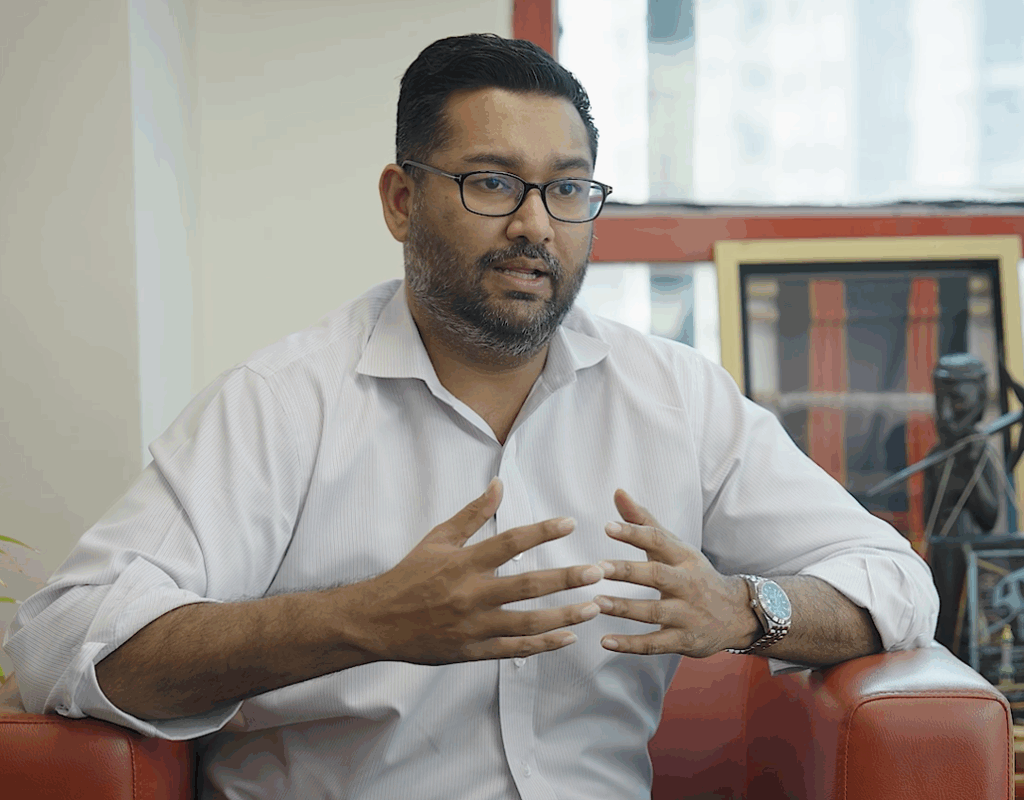
“These public–private partnerships help the government reach marginalised farmers further than before. The private sector can invest more resources, make decisions instantly, and bring in innovations that address real challenges in the field,” says Tajwar M Awal, Director of Technical Operations, Lal Teer Seed Limited.
“This model is unique because it learns and improves from the challenges it faces. If replicated and implemented well, it can strengthen food security across the Global South,” says Mahe Alam, Senior Advisor, Cordaid Bangladesh.
A New Development Paradigm
Private Sector Engagement under COASTS is not a supplement; it’s a necessity. It enables resilient systems that continue functioning long after project timelines end.
Donors and development actors must evolve from funding only temporary interventions to facilitating partnerships that last. Investing in business ecosystems, co-creating with communities, and enabling private actors to scale solutions is how we move beyond aid and into a future where resilience is real.
Cordaid is now scaling this model across Bangladesh, inviting companies, NGOs, and donors to co-invest in market-driven, community-led transformation.
Because when business, civil society, and communities come together, lasting change is not just possible; it becomes inevitable.
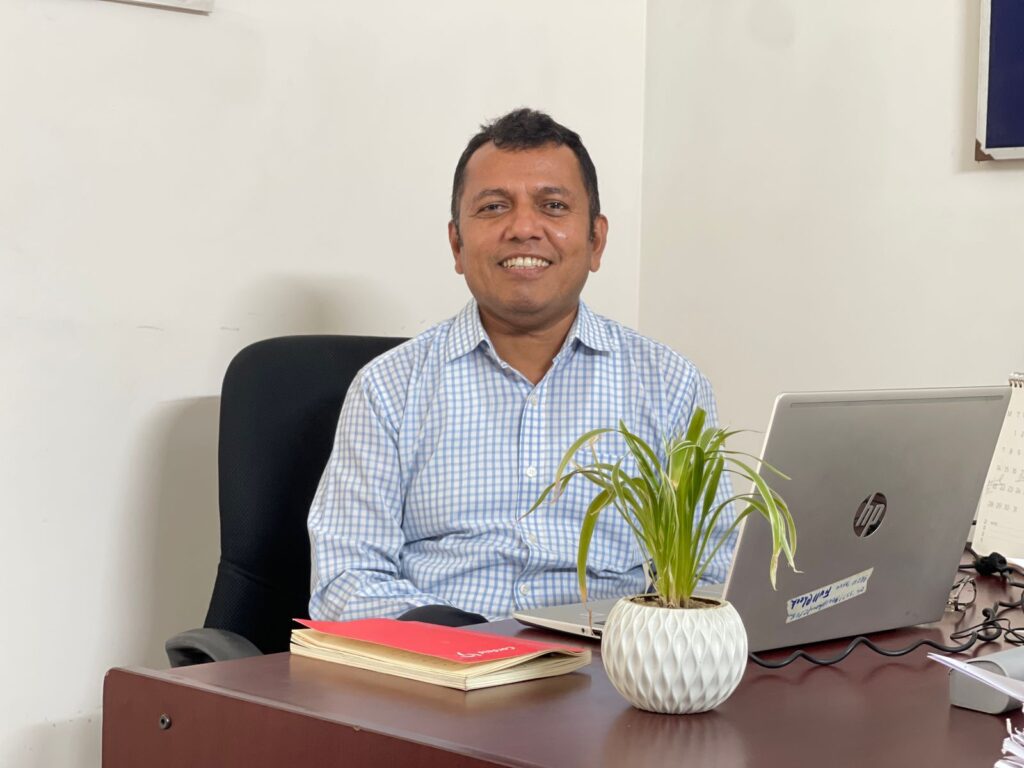
COASTS (Coastal Opportunities and Agricultural Solutions to Tackle Salinity) is a public-private partnership project implemented under the Sustainable Development Goals (SDG) Partnership, with support from the Netherlands Enterprise Agency (RVO) in collaboration with the Soil Resource Development Institute (SRDI), the Ministry of Agriculture, Bangladesh Agricultural University, and Lal Teer Seed Ltd.
The project focuses on restoring fallow saline lands in coastal Bangladesh by promoting salt-tolerant crops, adaptive farming practices, community engagement, and rural entrepreneurship. To date, COASTS has successfully transformed over 5,000 hectares of unproductive land into productive farmland, trained 10,000 farmers in saline-resilient agriculture, and introduced 15 salt-tolerant vegetable seed varieties. Through this collaborative and climate-smart approach, COASTS is building long-term resilience and improving livelihoods in some of the country’s most climate-vulnerable regions.